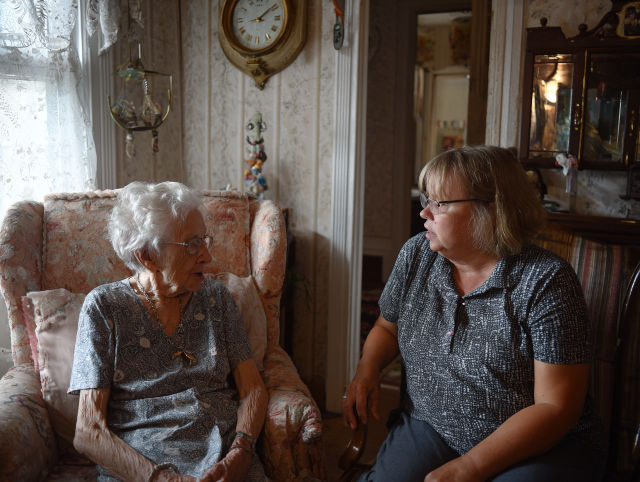Caring for a loved one with dementia is an act grounded in devotion, yet it carries a heavy emotional and physical toll. The familiar reminder that no one can give endlessly without replenishing their own strength rings especially true for the more than nineteen million Americans who support relatives living with Alzheimer’s Disease and related dementias. These caregivers often face prolonged stress, limited assistance, and increasing responsibilities as the condition progresses. As the nation’s population ages, the need for practical, accessible support tools has become more urgent, prompting researchers to explore new ways to ease the burdens placed on families.
Against this backdrop, digital health interventions have begun to demonstrate real promise. A process evaluation led by Kang Shen, a PhD student in health services research at George Mason University’s College of Public Health, presents compelling evidence that user-friendly digital programmes can offer meaningful relief and practical guidance. Her work centres on WECARE 2.0, a culturally tailored digital intervention explicitly designed for dementia caregivers. According to Shen’s analysis, participation in the programme led to notable improvements in users’ mental and physical well-being, showcasing how thoughtfully designed digital tools can help bridge long-standing gaps in caregiver support.
One of the programme’s most striking strengths lies in its intuitive, culturally resonant delivery. Shen highlights that WECARE’s combination of relevant content and an accessible technological platform proved both effective and popular among participants. High satisfaction and strong engagement were reflected in caregivers’ reports of enhanced skills, improved problem-solving, reduced stress, and increased feelings of social support. Several participants noted that the programme’s audio recordings, how-to videos, and flexible access suited their needs, especially for those less comfortable with lengthy written materials. This ease of use reinforced WECARE 2.0’s appeal across age groups, including older adults who might otherwise hesitate to engage with digital resources.
The research, published in Alzheimer’s & Dementia in September 2025, also stands out for its innovative evaluative approach. Rather than relying on a single method, Shen employed a blend of qualitative and quantitative techniques: surveys, interviews, self-reported reviews, and digital engagement metrics. This comprehensive data set provided more profound insight into how caregivers interacted with the content, how often they engaged with various features, and which aspects they found most helpful. Such a multi-layered approach provides far richer insights than traditional evaluations, revealing not only outcomes but also the mechanisms behind them.
A key feature of Shen’s work is the integration of both active and passive measurements. Short surveys captured direct user feedback, while backend usage tracking recorded real-time behaviour. Together, these methods allowed researchers to detect what was working well, what required adjustment, and why. This dynamic perspective enables continuous refinement of digital tools, ensuring that interventions remain relevant and responsive rather than static or outdated. It also sets a valuable precedent for future digital health research, particularly in underserved communities.
Professor Y. Alicia Hong, an expert in digital health interventions, established the foundations of WECARE. Delivered through the widely used social media platform WeChat, WECARE 2.0 provides educational articles, video guides, self-care tips, and avenues for social connection. By meeting caregivers within a familiar digital environment, the programme lowers barriers to participation and fosters a sustained sense of accessibility and support.
Insights from Shen’s evaluation are already being incorporated into the next phase of WECARE’s development to create even more effective and inclusive tools for diverse caregiving communities. Supported by a multidisciplinary team of collaborators across several universities, Shen’s work provides a model for designing culturally grounded, genuinely accessible digital interventions.
In its essence, this research offers more than a single programme: it marks a step forward in reimagining how technology can support families caring for loved ones with dementia. By prioritising usability, cultural resonance, and rigorous evaluation, WECARE 2.0 demonstrates how digital innovation can ease caregivers’ burdens while strengthening their confidence and resilience.
More information: Kang Shen et al, Process evaluation of a digital health intervention for dementia caregivers: Integrating active and passive measurements, Alzheimer’s & Dementia. DOI: 10.1002/alz.70663
Journal information: Alzheimer’s & Dementia Provided by George Mason University







